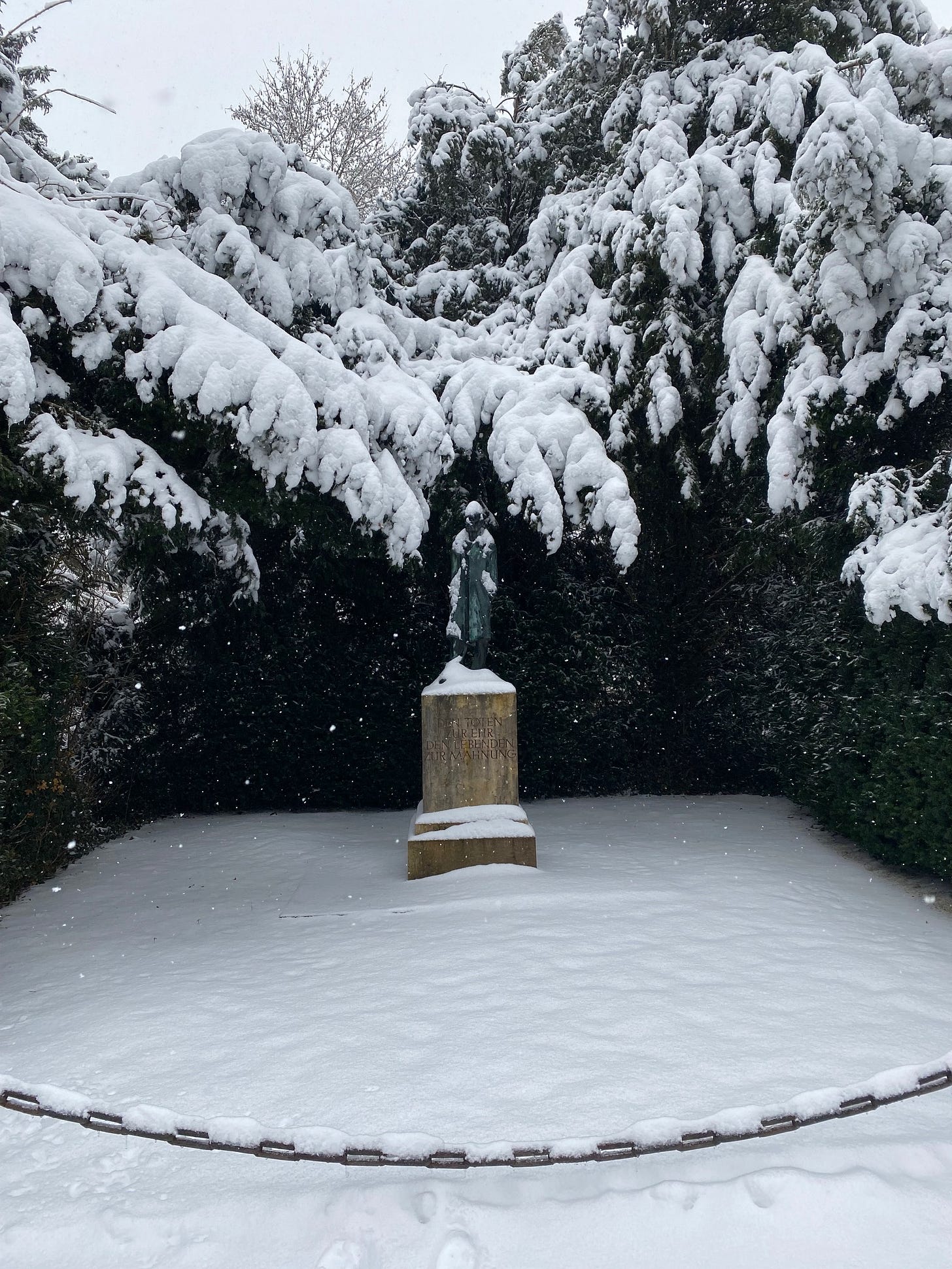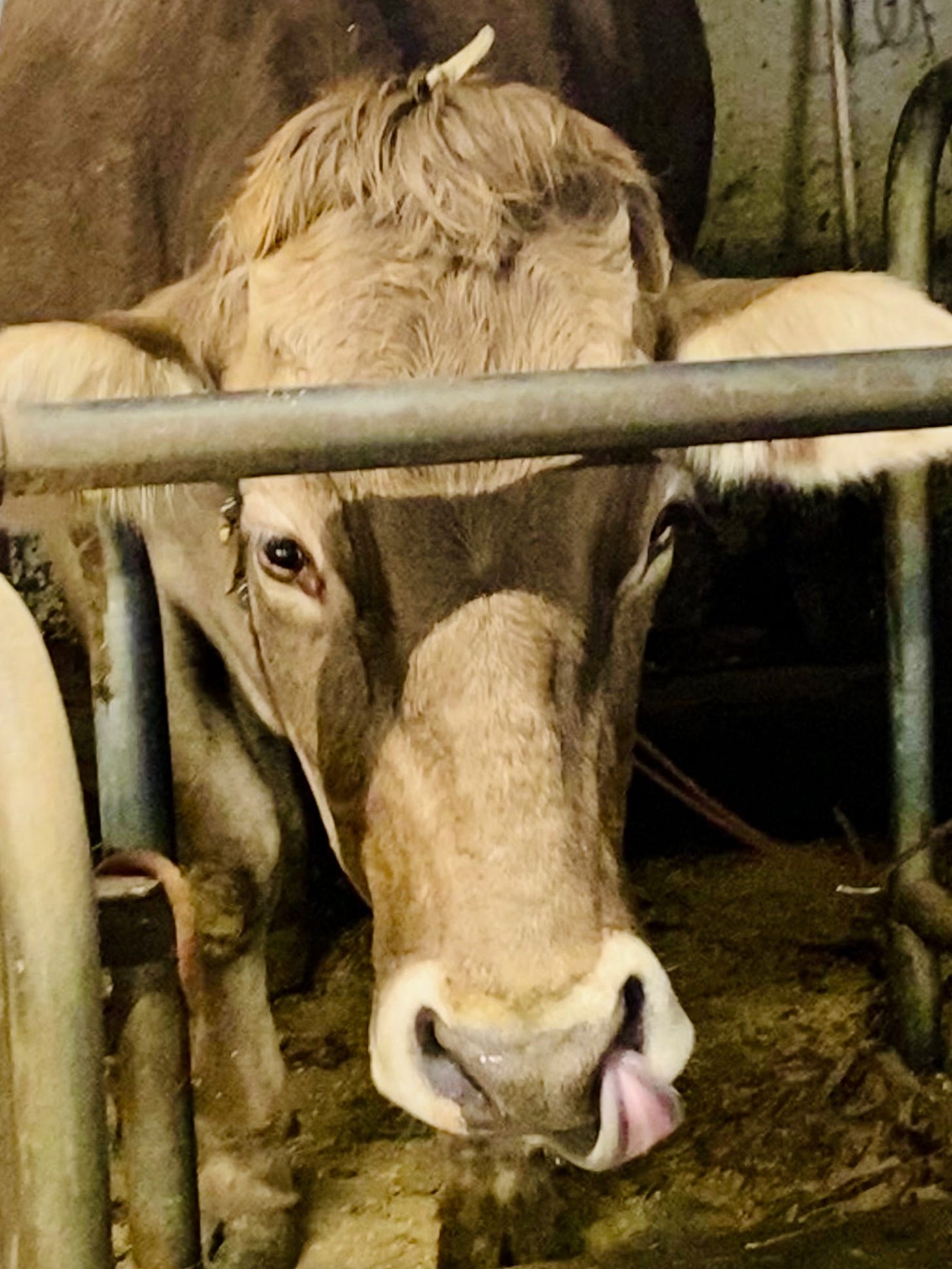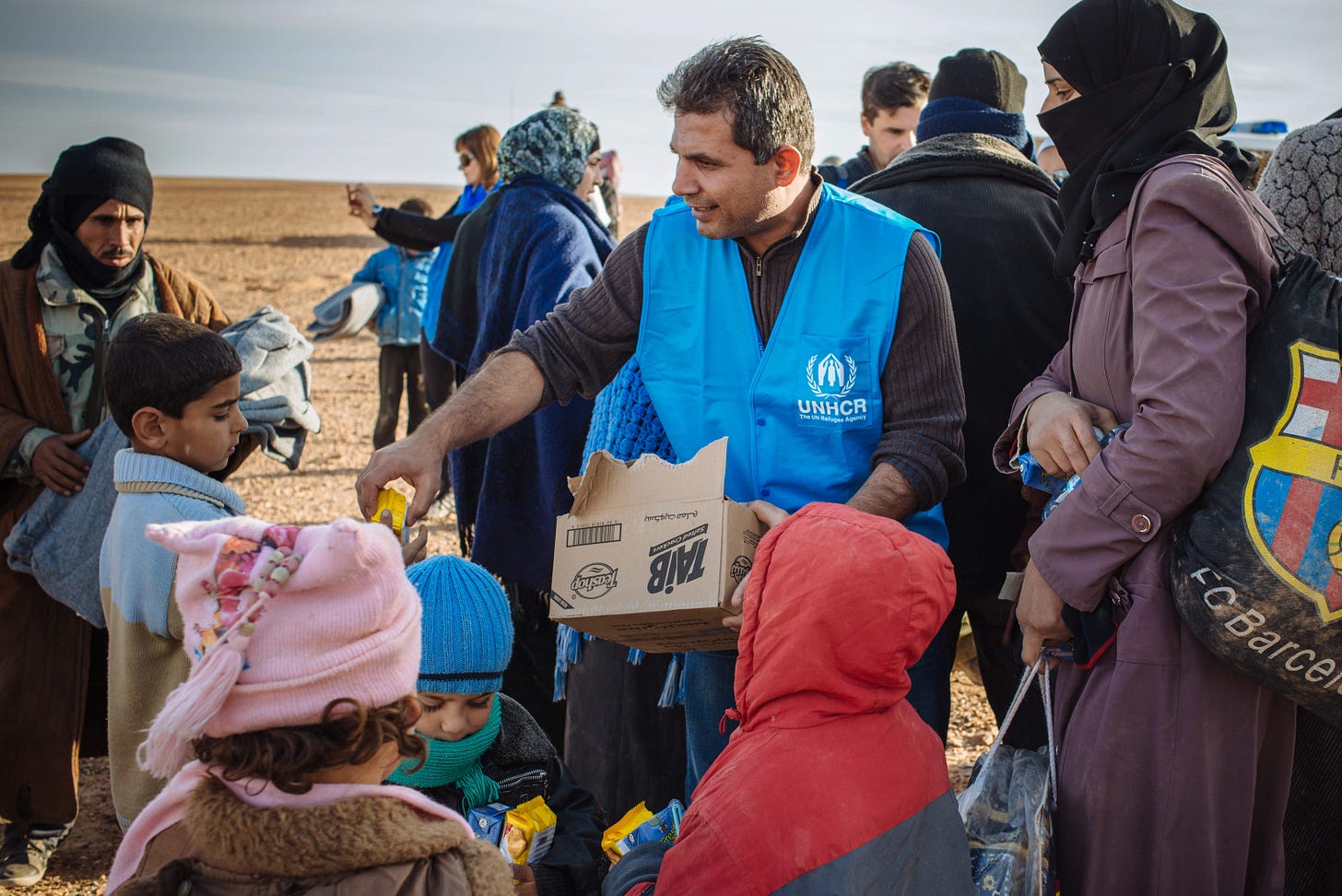Dear friends,
I hope you are doing well and that you have been gentle with yourself as we have started a new year. I have meant to write this newsletter for a while but haven’t had the creative energy to write lately due to my very busy day job and because, well… *gestures broadly at everything*.
It takes me a while to process experiences and write about them—I wish I could tell you that it’s due to the excellent advice given to creatives: “create from your scars, not your wounds.” But it’s not. I’m just a slow processor. However, I finally have the space to reflect on and write about a short trip I took to Central Europe.
In December 2022 I did something I had never done before. I took a vacation by myself to visit the Christmas markets of Austria, Germany, and Switzerland. It was as beautiful and magical as you might imagine—I felt like I was in a real life Hallmark Christmas movie, even taking a sleigh ride through the Swiss countryside in a horse-drawn sleigh with jingling bells. The only thing missing was running into a handsome stranger who would lure me away from my big city career for a life in the country on a dairy farm (I met no stranger, but I did meet a very friendly Jersey cow).
Honor the Dead
Perhaps my intro belies the seriousness of what I want to share with you, but I want to tell you about an excursion I chose to take on that trip; I went to Dacchau Concentration Camp Memorial Site just outside of Munich, Germany. After visiting castles, festive markets, and historic buildings, it was sobering to be in a place like Dacchau, a place explicitly created to harm people and take their lives—where the unofficial motto was “annihilation by work.” It reminded me of visiting the remnants of the gulags in Kazakhstan. These spaces are sacred, if only because they have absorbed so much blood and seen so much human suffering.
It was especially difficult to be in that space during the winter when there was so much snow falling and on the ground. The guide told us stories of Jewish and other prisoners who were made to stand in the yard in freezing winter temperatures, exhausted and shivering, until every single prisoner had been accounted for—a process that could take hours if someone was missing for any reason.
In a side conversation, a local told me that in Germany, it’s not just children that come on field trips to places like Dacchau, but adults from their workplaces. We were told that Germany takes its history of fascism, the Holocaust, and World War II very seriously in an effort to honor the people who were murdered and learn from that history. It is a crime in Germany to give the Nazi salute, and in Austria, where Hitler was from, they have kept from the general public information about the exact place where he was born to prevent it from becoming a place of pilgrimage for neo-Nazis.
When I was a high school English teacher in Florida, the state required us to teach a unit on the Holocaust in 4th, 8th, and 10th grades for much the same reason—we read novels on the Holocaust, watched documentaries, and learned the history of the time. Notably, we did not learn that Otto Frank, Anne’s father, was denied a visa to the US twice (!) because of the virulent anti-Semitism in the US that sought to limit the number of Jewish people admitted to the country.
But I digress. My point is that, though by no means perfect, these countries have done things explicitly aimed at reckoning with their history and learning from it in an effort not to repeat it.
Remind the Living
Near the crematoriums in Dacchau I came across this statue of The Unknown Prisoner. It depicts a frail inmate in a prison uniform. An inscription at the base of the statue reads, “To honor the dead, to remind the living” in German.

It seems that despite all efforts to memorialize the Holocaust and teach about it through schools, museums, memorial sites, novels, films, and other means, we haven’t learned the lessons of its history. We learned the facts, and, at least in the US, made sure people knew we were on the right side of that terrible history. But we didn’t absorb the lessons about the consequences of supporting demagogues and dehumanizing our neighbors, blaming them for a world that isn’t as we would like it to be.
Never again and never forget, we were told. This tragedy must never again be repeated, for we cannot allow members of the human family to be slaughtered with impunity ever again.
Yet here we are…again.
So Trump is allowed to say with the support of half of all Americans that immigrants are “poisoning the blood of our country,” and the Israeli government is allowed to slaughter Palestinians while much of the world watches and doesn’t condemn their actions. Anti-Semitism is once again on the rise around the world, and the state of Texas is fighting a Supreme Court ruling that would force them to remove barbed wire from the river because it harms and has even killed migrants in vulnerable situations.
We have forgotten. Never again has become “here we go again.”
Hope in Hopeless Times
I have refrained from saying much about Palestine in my social media, because I’m not an expert on Middle East diplomacy and history. I wanted to stay in my lane, so to speak. But valuing and protecting human lives is my lane—it’s a lane where all of us belong.
I’m disheartened by the state of the world, but I’m also unwilling to give in to cynicism and despair. While I continue to call my government representatives and senators, I am also encouraged by the people on the ground, who though unable to make systemic changes, are affecting one life at a time for the better. These are the people who work in shelters, who run nonprofits, who are humanitarian workers, who drop water containers in the desert, who risk their lives to bring aid into Gaza, and so many others whose work I don’t even know about.
Often when I speak on immigration I’m asked what gives me hope amid such a hopeless immigration landscape here in the US. I always tell people that I try to focus not on the national conversation but on the local one. Locally, you will always find people quietly working to care for their neighbors in need. Whether it’s a lawyer working pro-bono to help a person with their asylum case or a church opening its doors to allow the kids in the neighborhood to use their Wi-Fi for schooling during the pandemic or a case worker finding housing for a refugee family or an aid worker distributing food and water.
There’s no fanfare or excitement around these jobs—they never make the news or get reported in the media. In fact, most of the work they do is administrative and logistical. But it’s work that makes a world of difference one life at a time. Desmond Tutu once said, “Hope is being able to see the light despite all the darkness.” These are the places where I see the light.
One of the more interesting things about traveling alone is that you end up befriending people you would otherwise ignore if you had your own traveling posse. On my Christmas market tour, I had the chance to meet some lovely people whom I discovered care deeply about the world. It was a restful trip, and it reminded me that we need rest from the cares of the world as well so that we can return to the work refreshed and ready.
I hope you are finding hope amidst the grief in the world, too.
Cheers,
Karen






Such a powerful reminder to me, Karen. Thank you so much for what you do and who you are.